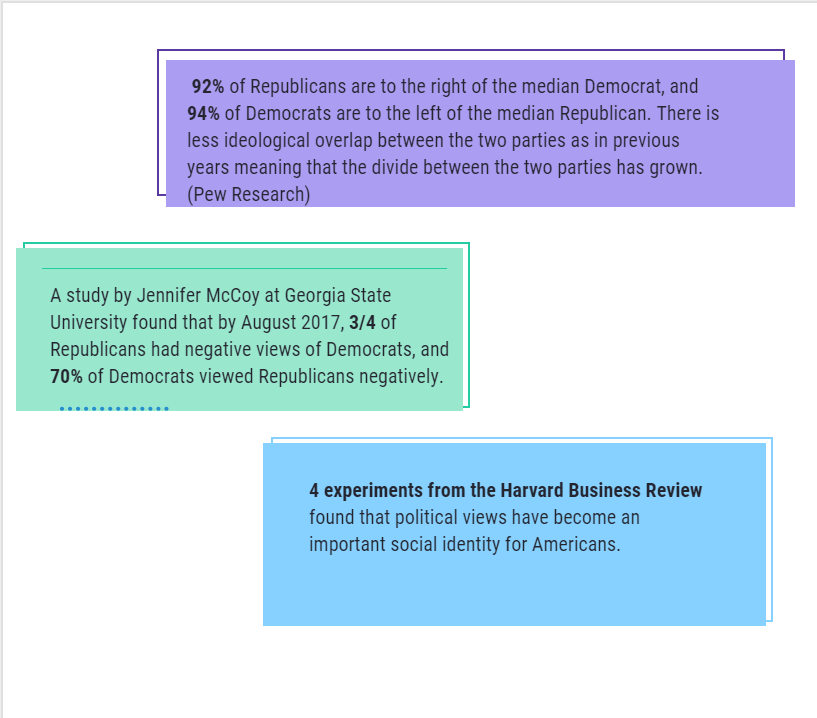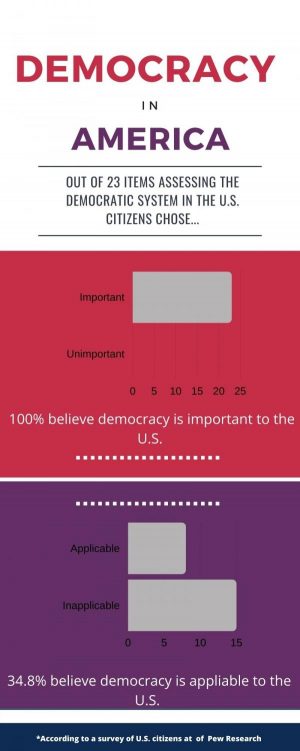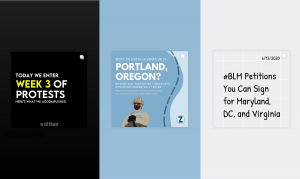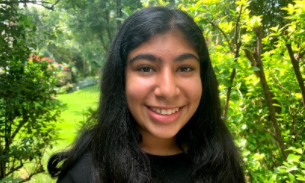Political enmity greatly contributes to division in the country
Information from the Harvard Business Review, Pew Research, and a study by Jennifer McCoy at Georgia State University illustrates the growth of political division in the country.
December 28, 2020
Over the past decade, animosity between both political parties has discouraged civil discourse, causing existing beliefs to take deeper root and like-minded people to form clusters with no political diversity.
According to Penn State’s Civil Issue Site, a person’s background, such as their state, community, and culture, can deeply influence a person’s worldview due to continued exposure to certain political ideologies, which can contribute to political polarization.
“The increasing levels of diversity are incredibly beneficial in the long run, [but] can cause a lack of understanding and compassion in the short term,” junior and Model UN officer Yukta Ramanan said. “People grow up differently and have di fferent perspectives inherently hammered into them.”
American media has mirrored the growing political division within the public by becoming increasingly partisan in nature. According to IESE Business School, the daily consumption of biased news ultimately results in a positive feedback loop due to the reinforcement of existing ideals which promotes further political enmity.
“[The media needs to] stop prioritizing sensationalism and spouting extreme views to catch people’s attention and start prioritizing truth and a lens that seeks to unite,” senior and debate captain Cindy Wu said. “There’s so much bias behind every story to make it more emotionally appealing, so it’s no wonder people are compelled to take sides.”
Social media such as Instagram and Facebook also play a role in political polarization by feeding in certain bits of information to a user and blocking out others. In social media, views and likes on posts can influence both a user’s likelihood to believe the content displayed in that post and news posts that show up in their feed. A survey by Forbes found that 64.5% of internet users receive news from these platforms instead of traditional outlets.
“Do your own research [instead of] getting all your information from Instagram,” Ramanan said. “Dismantle biases and systems of oppression within yourself and make sure to fact check everything you read.”
People believe that the rhetoric of a political leader can be deeply impactful in promoting unity or further division. In the past four years, President Trump has become notorious for using language that carries negative connotations toward the left like “far left fascism” and “radical left,” which promote further division. According to The Hill, he established a new record for division in the country, drawing approval from 95% of Republicans compared to only 3% of Democrats.
“A leader can either show how the country’s agenda is for the best interest of everyone or abuse their influence [over the American people] to fuel a cult of personality based on riling up negative emotions and beliefs,“ Wu said.
Political polarization has many detrimental effects on American democracy. Unity and nationalism are undermined by enmity between political parties and familial bonds are compromised by political differences. A lack of civil discourse can result in the progress towards the resolution of issues staying at a stand-still.
“We need to stop thinking so negatively about other fellow human beings,” Wu said. ”Most of the time, we’re all just normal people with normal lives who aren’t represented by the extremists or the media sensationalist version of the state of the nation. If we put aside our emotions we’d be better able to see what’s really happening and how to fix it.”





